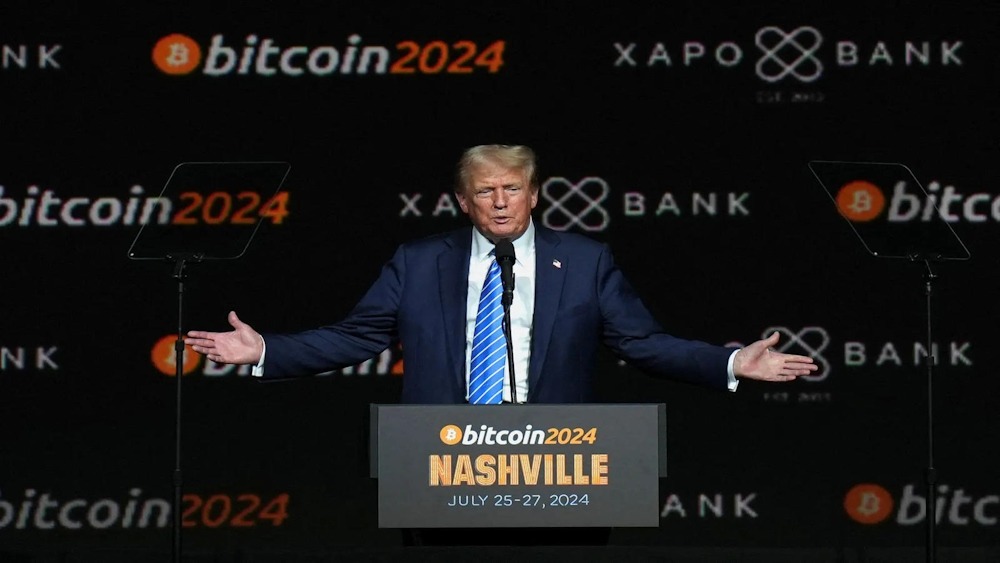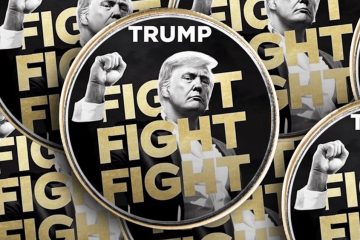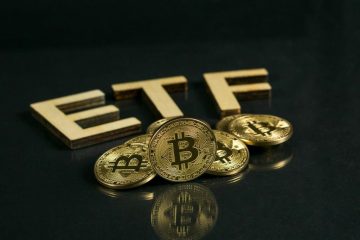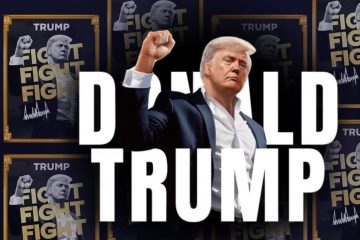Trump aligns his campaign with the Crypto

This week, Donald Trump shifted his focus to a surprising demographic—cryptocurrency enthusiasts and the affluent investors who dominate this sector. The ex-president, previously a critic of bitcoin, on Monday initiated a new cryptocurrency venture alongside his family. On Wednesday, he treated patrons of a bitcoin-themed dive bar in New York to a round of burgers. Pledges to obstruct a Federal Reserve-supported digital currency and create a “strategic national bitcoin stockpile” are notable in campaign speeches that predominantly emphasize more conventional political concerns such as immigration and trade. This has garnered him enthusiastic backing from an expanding group of single-issue voters, as well as affluent contributors, who assert that the government’s stance on cryptocurrency will influence their decisions at the ballot box.
A sector frequently in conflict with governmental authorities has found new energy with the prospect of a supportive figure in the White House, remarked Dennis Porter, chief executive officer of Satoshi Action Fund, a nonprofit organization advocating for bitcoin. “This sector is populated by an electorate that is increasingly affluent and powerful, and now there is an individual seeking to represent their interests,” Porter remarked. “Supporters will provide him with votes and financial backing.” The ultimate impact of those votes is yet to be determined, yet the financial support has already demonstrated its utility.
In a podcast from July, Marc Andreessen and Ben Horowitz, the co-founders of the venture capital firm Andreessen Horowitz, expressed their support for Trump, noting that he had effectively “rewritten the Republican National Committee platform” into what they described as a “flat-out, blanket endorsement of the entire space.” Cameron and Tyler Winklevoss, the billionaire founders of the crypto exchange Gemini, have lent their support to the cause. Supporters have expressed their endorsement of Trump, citing his favorable stance towards bitcoin, cryptocurrency, and business interests, and have contributed $1 million each to his campaign in digital currency. The contributions were partially returned as they surpassed the federal limits on campaign donations. Jesse Powell, a co-founder of the cryptocurrency exchange Kraken, disclosed a contribution of $1 million to Donald Trump’s campaign and a pro-Trump super PAC, primarily in ether tokens, as indicated in his post on X and filings with the Federal Election Commission.
The contributions from tech moguls reflect the increasing influence of the cryptocurrency sector, which has cultivated a network of nonpartisan super political-action committees that have gathered nearly $170 million to deploy in the upcoming 2024 election cycle. Trump’s campaign has garnered substantial financial support through contributions made in cryptocurrencies as well.
The recent expansion of capital in the cryptocurrency sector marks a significant shift from the previous two years, during which the collapse of various cryptocurrencies and associated firms triggered a downward spiral in prices. Ordinary investors experienced significant losses, while the Justice Department prosecuted multiple former executives for fraud, resulting in prison sentences for some. Cryptocurrency valuations have experienced analogous cycles of rapid ascents followed by significant declines in previous years. This year, the price of bitcoin has surged back to approach its previous record levels.
So far, this wider flow of resources has not made a significant impact on the presidential election, with attention primarily directed towards congressional contests. The influence in these contests has been substantial, as cryptocurrency firms account for almost 50% of all corporate donations to nonpartisan political action committees, as reported by Public Citizen, a nonprofit organization focused on consumer advocacy.
Trump’s cryptocurrency initiative resonates with the approaches of other presidential contenders who have committed to particular economic strategies. William Jennings Bryan’s campaign in 1896 largely served as a critique of the gold standard. Upon assuming the presidency, Franklin D. Roosevelt enacted a directive that curtailed the private ownership of gold. Ron Paul’s 2008 campaign criticized the Federal Reserve. The crypto sector’s overtures towards Trump were prominently showcased at a fundraising dinner held in San Francisco in June. Representatives from major U.S. cryptocurrency enterprises, including the exchange Coinbase and the payments platform Ripple, were present, alongside the Winklevoss twins.
During the dinner, Trevor Traina—former ambassador to Austria under the Trump administration and currently a crypto entrepreneur—emphasized that although the majority of significant internet enterprises are rooted in the United States, a considerable number of prominent crypto firms are situated abroad due to a perceived antagonism from the government. Traina inquired if the U.S. was prepared to forgo participation in a burgeoning industry. Trump remarked that such a scenario would be disastrous. The conversation swiftly shifted to a common aversion towards Securities and Exchange Commission Chair Gary Gensler, whose assertive enforcement strategy has rendered him a formidable figure for cryptocurrency firms. “There seems to be a consensus that Gensler resembles a character from the film ‘A Quiet Place,’” remarked Traina. “Any utterance may result in legal action.”
During that month, Trump convened approximately twelve executives from the bitcoin-mining sector, which relies on computational power to produce random numbers in pursuit of new bitcoin, at his Mar-a-Lago estate. During a casual meeting over sodas and macadamia cookies, Trump inquired about the energy consumption requirements associated with bitcoin mining and indicated that his campaign would formulate supportive narratives regarding the industry in the near future. “He explicitly stated that he would prefer to see all of the remaining bitcoin mined in the U.S.,” remarked Matthew Schultz, executive chairman of the bitcoin mining firm CleanSpark, who was present at the event.
Trump’s endorsement of cryptocurrency is exemplified by his selection of Howard Lutnick, the chairman and CEO of Cantor Fitzgerald, to serve as a co-chair of his transition team. In aligning with a longstanding associate and fundraiser, Trump may well be positioning one of the cryptocurrency sector’s most ardent advocates on Wall Street in a pivotal role. Prior to Lutnick’s appointment, the two individuals addressed an audience at a bitcoin conference held in late July in Nashville, Tennessee. “The regulations will be crafted by individuals who are passionate about your sector, rather than those who harbor disdain for it,” Trump stated in his address.
Lutnick captivated the audience with an account of Cantor’s credentials in the cryptocurrency sphere, a reputation he has cultivated as he has steered Cantor further into the sector since 2020. The company currently possesses a substantial quantity of bitcoin, as noted by Lutnick, and has revealed plans to establish a $2 billion facility aimed at providing loans secured by bitcoin collateral. Lutnick has also linked Cantor to Tether, a prominent and highly lucrative entity within the cryptocurrency sector. Tether’s flagship offering is the most widely utilized stablecoin, also named tether, which operates as an unregulated digital dollar, boasting a circulation of $119 billion. Cantor oversees the management of Tether’s portfolio consisting of U.S. Treasurys.
The promises made by Trump concerning cryptocurrency frequently yield immediate repercussions for his supporters. A proposed “strategic national bitcoin stockpile,” as suggested by Trump, would serve to legitimize bitcoin as a reserve asset. His commitment to obstruct a central bank-issued digital currency could effectively prevent a formidable rival to Tether from entering the marketplace.
Certain investors and analysts perceive Trump’s candidacy as likely to have a favorable impact on cryptocurrency prices in a broader context, extending beyond his attempts to attract the digital-currency demographic. The candidate’s propensity for remarks that challenge established norms has led Wall Street to perceive a Trump presidency as a potential catalyst for increased volatility across all asset classes—conditions that have historically favored bitcoin. During the conference, Trump reaffirmed his commitment to commuting the sentence of Ross Ulbricht. Operating under the pseudonym “Dread Pirate Roberts,” he established and managed the cryptocurrency-driven Silk Road online drug marketplace, ultimately receiving a life sentence for federal drug and computer-related offenses. However, Trump’s most appealing commitment to the cryptocurrency community is his vow to oust Gensler from his position at the SEC.
In their podcast, recorded prior to Trump’s commitment, Andreessen and Horowitz expressed their frustration over Gensler’s repeated refusal to engage with them, despite their firm’s status as one of the largest investors in the cryptocurrency sector. Powell’s Kraken finds itself embroiled in legal disputes with the regulator, facing allegations of violating securities laws and concurrently agreeing to a $30 million settlement with the SEC. Trump’s commitment to dismiss Gensler on his inaugural day in office elicited a resounding ovation and enthusiastic cheers from the audience at the bitcoin conference, prompting him to reiterate the promise. “I was unaware of the extent of his unpopularity.” “Allow me to reiterate,” he stated. “On the first day, I will terminate Gary Gensler’s position.” “Cryptocurrency is an imperative we must embrace.”
Trump’s inclination to intertwine his commercial pursuits with his political endeavors has also adopted a cryptocurrency dimension. Since 2022, Trump has introduced and marketed four series of non-fungible tokens—essentially digital trading cards—targeting his supporter base. His most recent cryptocurrency enterprise, World Liberty Financial, debuted with considerable publicity on Monday evening, showcased through a two-hour livestream that included Trump and his family on Elon Musk’s X platform. The initiative, which aims to enhance the prominence of cryptocurrency in the United States through the widespread acceptance of stablecoins and decentralized finance, has thus far provided limited information regarding its operational framework. The project’s team announced plans to sell and distribute a token exclusively to affluent investors who satisfy specific income and net worth thresholds.
During his 40-minute interview on the stream, Trump, who is often referred to as World Liberty’s chief crypto advocate, did not directly address the project. A portion of his address centered on a second apparent assassination attempt thwarted the previous day, during which a gunman was apprehended after lying in ambush at the Mar-a-Lago golf course. At that moment, Trump was engaged in a round of golf with Steve Witkoff, a notable supporter of World Liberty. In discussing cryptocurrency, Trump remarked that his children were more enlightening than any other influence. Donald Jr. and Eric, designated as World Liberty’s “Web3 Ambassadors,” have been actively promoting World Liberty and extolling the virtues of decentralized finance across social media platforms for several weeks. His youngest son, Barron, described as World Liberty’s “Chief DeFi Visionary,” is similarly engaged, possessing up to four crypto wallets—digital tools that enable users to store, manage, and transact in cryptocurrencies, according to Trump. The former president’s remarks aligned with his characteristic approach of portraying his support for cryptocurrency in sweeping terms. “Crypto is an imperative we must embrace,” he stated. “Regardless of our preferences, it is imperative that we proceed.”







